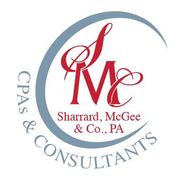4 FAQ About Tax Audits for Businesses

Tax season is generally the busiest and most stressful time of year for business owners. While getting your tax returns completed and filed on time can be a great relief, you may still have lingering concerns about the possibility of being audited. As such, every entrepreneur should know what to expect from the audit process. The following information provides some helpful insights into how IRS audits work.
A Business Owner’s Guide to IRS Audits
How are audits conducted?
If you’re selected for an audit, it may be conducted in one of three ways.
 The first type, known as a correspondence audit, is conducted by mail. Usually, you’ll be asked to send in further documentation supporting the claims made on your tax return.
The first type, known as a correspondence audit, is conducted by mail. Usually, you’ll be asked to send in further documentation supporting the claims made on your tax return.
The second type is an office audit. It’s performed at an IRS office. You’ll be interviewed by an IRS representative, and they’ll go over any financial records they question.
The last type is a field audit, which is held at your place of business. This will require an in-depth review of your expenses to verify your deductions.
How should I prepare for an audit?
To prepare for an audit, collect all the documentation necessary to prove your return is accurate and have it organized to show the auditor. Typically, the IRAS will request receipts, invoices, canceled checks, loan agreements, and bank account statements. Speak with your tax advisor about any personal and professional questions you should be ready to answer.
What are some common audit triggers?
Many tax returns are chosen for audit at random; however, there are also several red flags the IRS will look for. Generally, you’re more likely to receive an audit if you file a Schedule C, deduct for home office expenses, earn a high income, or repeatedly report a loss. Additional triggers include making excessive charitable contributions, claiming your vehicle as 100% business use, taking large business entertainment deductions, failing to report all taxable income, and misclassifying employees.
What can I do if I disagree with the results of an audit?
If you disagree with the auditor’s determinations, you can appeal the decision within 30 days of receiving the official findings and attend a hearing to present all the paperwork supporting your case. You may also pursue a fast track settlement, in which you can try to settle your dispute through mediation. Once you’ve exhausted these steps, you might be able to file a petition with the U.S. Tax Court.
For help avoiding or handling a tax audit, turn to the accountants at Sharrard, McGee and Co., PA in High Point and Greensboro, NC. You can rely on them to ensure your business tax returns have been prepared with careful attention to detail and in compliance with the latest tax laws. Backed by more than 40 years of experience, they’re qualified to provide you with professional tax advice and strategies to minimize your liabilities. Call (336) 884-0410 to schedule a consultation, or visit them online to learn more about their services.
About the Business
Have a question? Ask the experts!
Send your question

